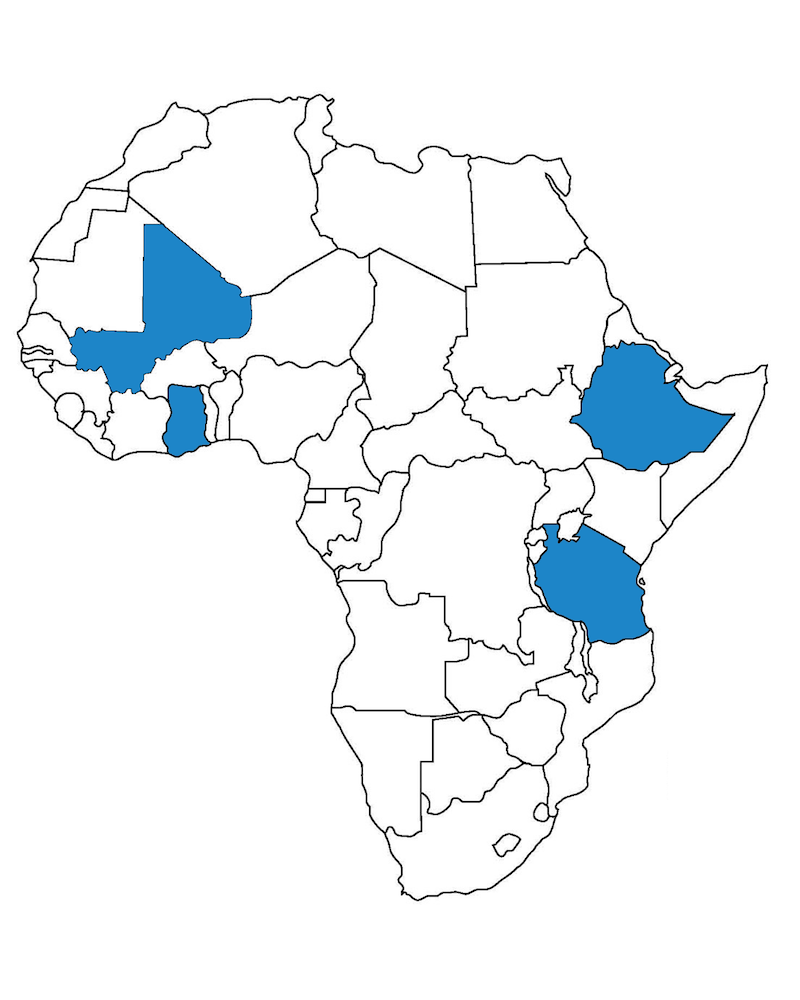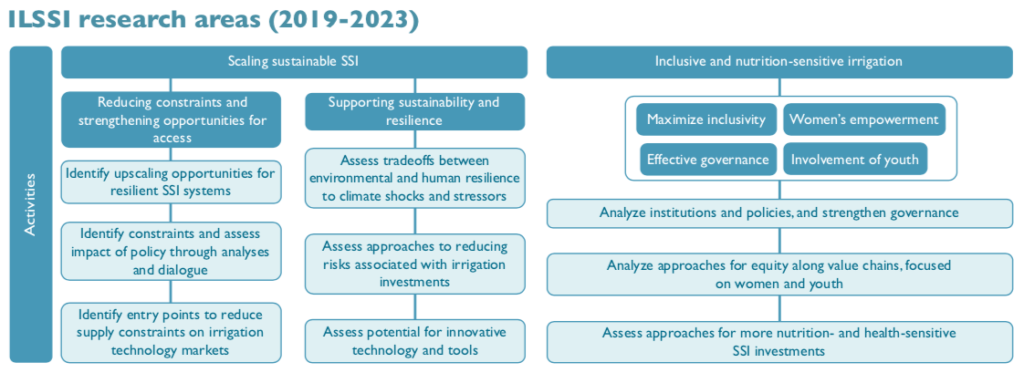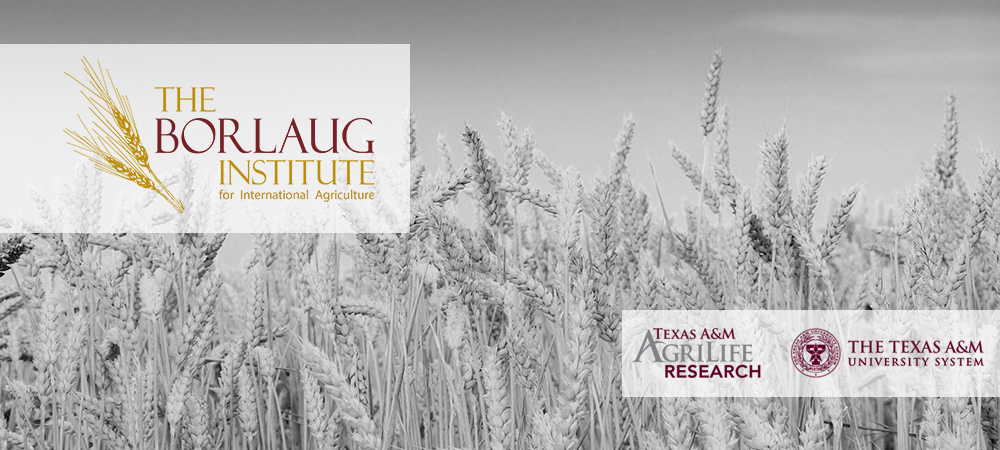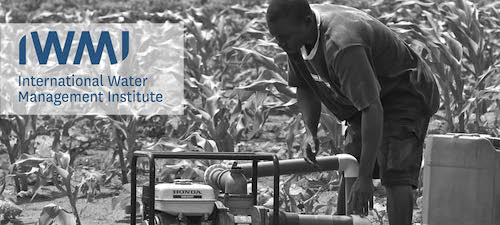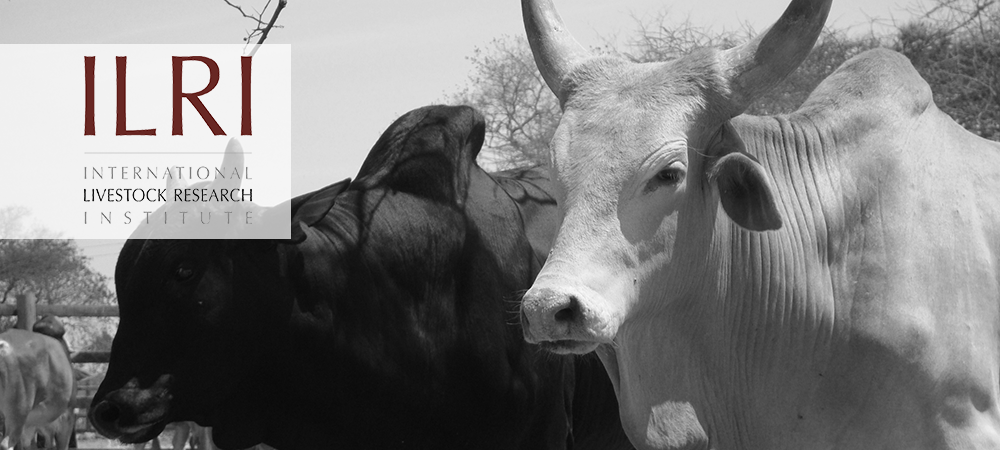The Feed the Future Innovation Lab for Small-Scale Irrigation (ILSSI) is a research-for-development project that aims to expand farmer-led, small scale irrigation in Ethiopia, Ghana, Mali, and Tanzania. Sustainable, profitable, and gender-sensitive irrigation contributes to agricultural growth, resilient food systems, and better nutrition and health, particularly for vulnerable populations. For more details about ILSSI, check out our program overview.
Now in its second phase (2019-2023), ILSSI is working to identify the best ways to expand the use of small scale irrigation within environmentally sustainable limits. ILSSI is a part of the U.S. Government’s Feed the Future Initiative.
Approach
Building on research from its first phase (2014-2018), ILSSI is now investigating how to feasibly and sustainably expand small scale irrigation. Promising starting points include mapping adoption potential, developing innovative business models, achieving more sustainable resource use, leveraging the potential for irrigated livestock fodder, identifying innovative finance options, expanding irrigated gardens, and improving women’s access to irrigation. ILSSI achieves impact through continuous engagement with institutions and organizations nationally and globally, and through its capacity development programs.
Partners
The following bullet points summarize the areas of leadership for the partners in this cooperative agreement. There is substantial overlap in responsibilities among and between the partners. Each partner brings a wealth of background, experience, and established presence and engagement in the target countries.
- Managing partnerships, stakeholder engagement and outreach
- Institutional capacity development and training
- Integrated Decision Support System (IDSS) training (APEX, SWAT, FARMSIM) for national stakeholders
- Assessing production, environmental, economic, and social impacts of promising small scale irrigation technologies
- Monitoring, evaluation and reporting
- Identifying promising, inclusive business models to scale small scale irrigation with private sector partners and entrepreneurs
- Facilitating innovation and dialogue space with stakeholders
- Studying economic incentives, opportunities, and inclusivity of small scale irrigation investments
- Conducting water resource assessments
- Identifying pathways to sustainably scale irrigated fodder production in Ethiopia
- Field-testing promising irrigated fodder
- Analyzing gender and inclusivity in fodder markets
- Assessing nutritional benefits of irrigated fodder for livestock and people
- Analyzing the pathways between small scale irrigation and incomes, nutritional security, and health
- Assessing the potential of small scale irrigation for economic growth
- Identifying the environmental and human resilience potential of scaling small scale irrigation
- Understanding the linkages between small scale irrigation adoption and gender empowerment
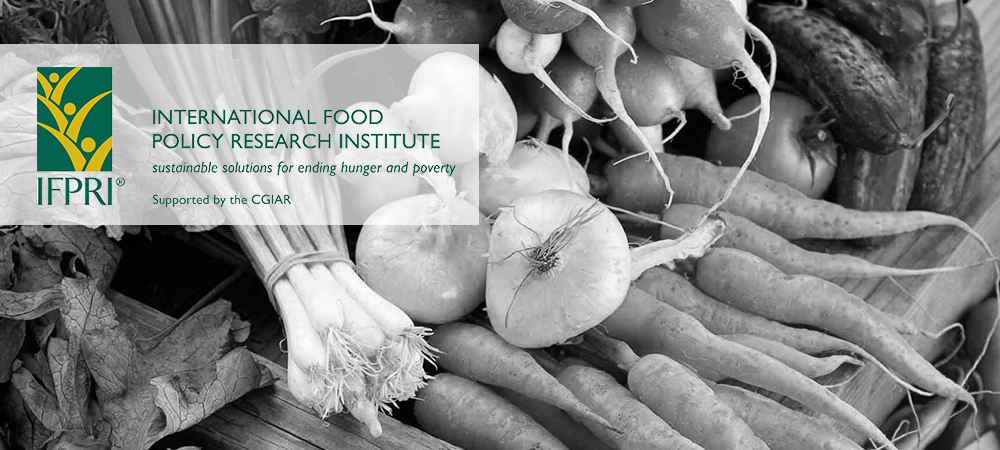
- Applying the HWISE scale in assessing water insecurity at household level
- Integrating the HWISE scale in basin level water resource availability assessment
- Developing capacity around the use of the HWISE scale among stakeholders
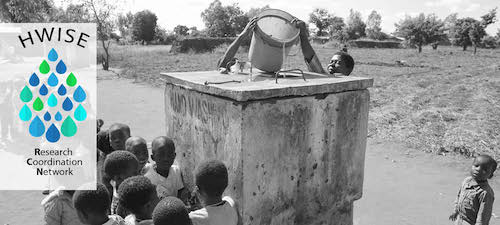
- Assessing the potential for developing a strong vegetable seed sector in Mali
- Identifying and prioritizing entry points for interventions supporting the vegetable seed sector, including the potential of irrigation
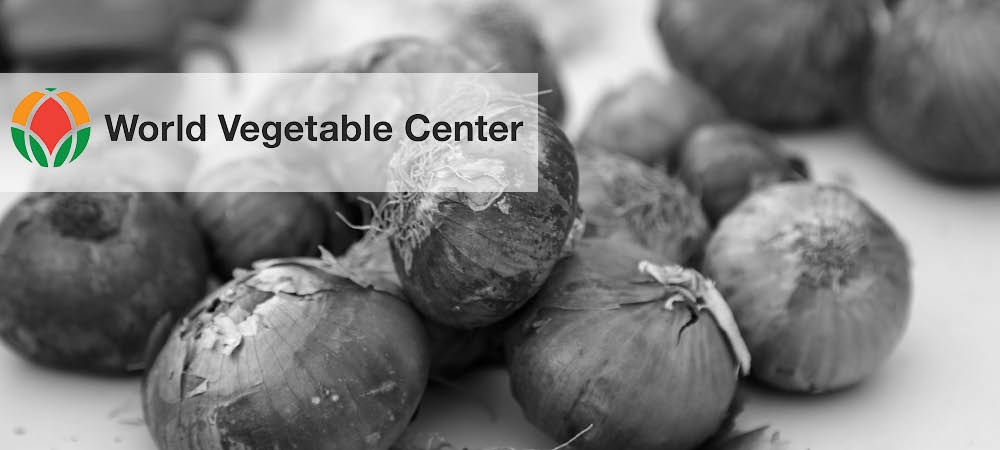
Donor
This Feed the Future Innovation Lab for Small Scale Irrigation was established at the Norman Borlaug Institute for International Agriculture Development at Texas A&M University in 2013 by the generous support of the American people provided through the U.S. Agency for International Development, under the terms of Contract No. AID-OAA-A-13-0005. This website, its contents and the opinions expressed herein are the responsibility of the Innovation Lab for Small Scale Irrigation and do not necessarily reflect the views of the U.S. Agency for International Development.

